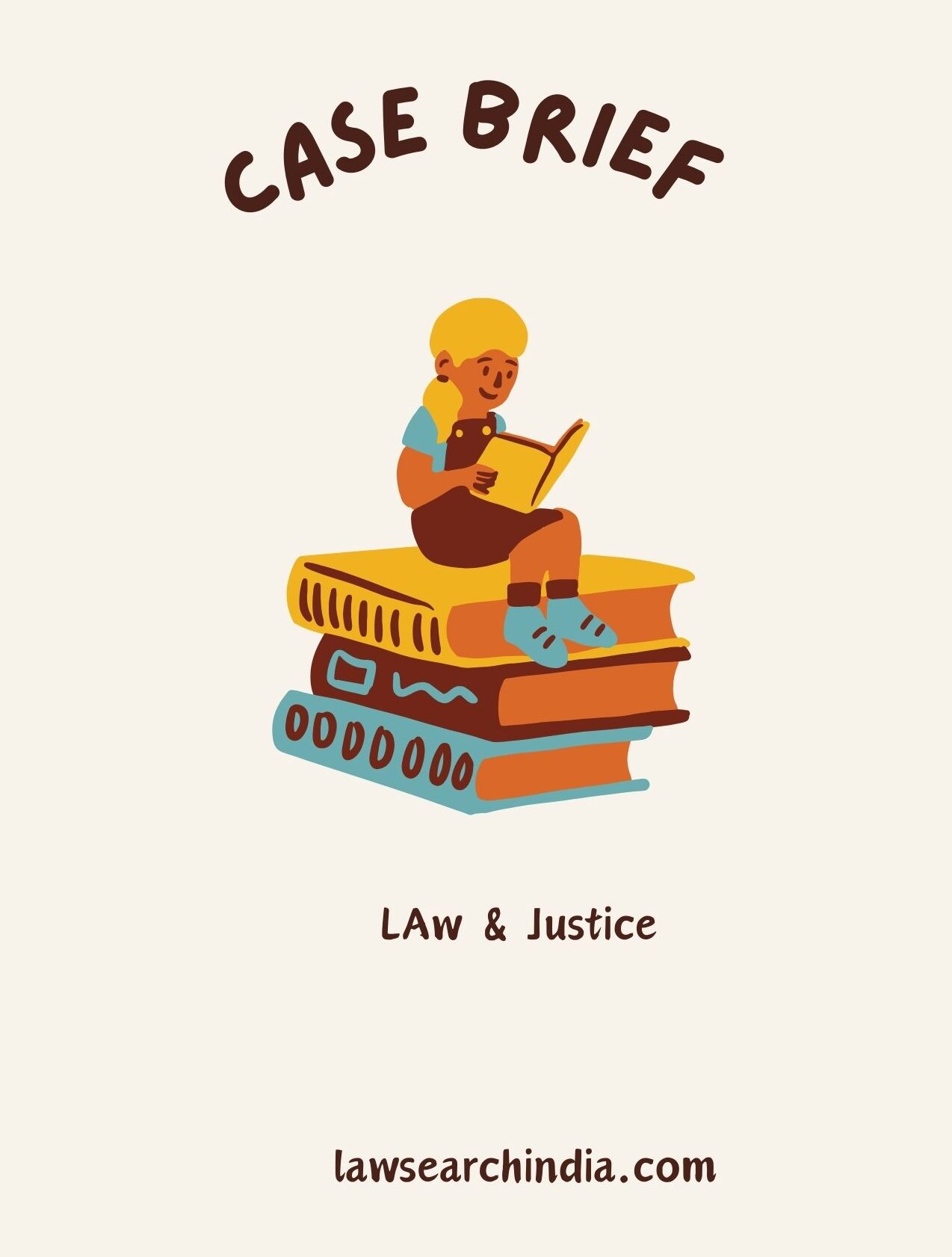CASE DETAILS
| Bench L. NAGESWAR RAO J. INDU MALHOTRA J. | Case no. (2020) 7 SCC 366 | Acts/law Limitation Act, 1963 CPC |

Introduction:
A civil appeal has been filed in the present case thereby assailing the order of division bench of Gujarat High court which affirmed the judgment of trial court wherein the trial court had dismissed the suit under order 7 rule 11(d).
Facts:
The suit pertains to the agricultural land which was sold by the plaintiff to defendant no. 1/respondent no. 1(herein appeal) vide registered sale deed dated 2.07.09 and respondent paid the sale consideration to plaintiff subsequently defendant no. 1/respondent no. 1 (R1) sold the property to respondent no. 2 and 3. Plaintiff raised the objection on the above said sale deed contending that same is not valid as the defendant no. 1 has not paid the entire sale consideration.
Contentions:
In 2014 plaintiff instituted a civil suit challenging the said sale deed, thereby claiming to declare sale deed null and void on the ground that the R1 did not pay the entire sale consideration.
R1 filed an application for the rejection of plaint under order 7 rule 11 (a) & (d) thus, contended that the suit should be dismissed in limen as it is barred by limitation and no cause of action exist and disclosed in plaint.
It is further asserted by the R1 that the suit should have been filed within the period of 3 years and pursuant to the sale deed of 2009 R1 is the lawful owner of the concerned suit property. Since the RT1 had the right, title and interest over the property he further sold the property to R2 & R3.
Respondents claimed that suit is devoid of merits, time barred by the law & liable to be rejected.
Trial court:
Based on the averments made in the plaint and written statement by the plaintiff and defendants respectively the Trial Court evaluated that in pursuance of the Article 58 and 59 of limitation Act 1963, the limitation for the initiation of the action against respondents concerning said sale deed is 3 years from the date of execution of sale deed that is 2.7.2009 and the suit was instituted in 15.12.2014 therefore the suit is barred by limitation.
The ld. trial court allowed the application under order 7 rule 11 and was pleased to dismiss the suit of plaintiff.
High Court:
The aforesaid order of trial court was assailed before the high court by filing an appeal under section 96 of CPC. The division bench of Gujarat High court opined that plaintiff instituted the suit after 5 years of execution of sale deed and plaintiff never raised any grievance of not having been paid the sale consideration. Suit is barred by the limitation and the said suit could also not be continued against the subsequent sale deed against R2 & R3. The High court affirmed the finding of ld. Trial Court.
Supreme court:
Plaintiff filed the appeal against the said order of the division bench of High Court. Court elucidated as under:
Remedy under order 7 rule 11 is special and independent remedy and application under the said order should be adjudged at the threshold without recording evidence and conducting trial. The crucial objection under order 7 rule 11 is clause (a) that is no cause of action and clause (d) suit is barred by the law. While the court exercising the power to terminate the civil proceeding which are meaningless, court must strictly adhere to conditions stipulated under order 7 rule 11 of CPC. It is a duty casted upon the court to determine whether the suit is barred or any cause of action subsist or not.
Order 7 rule 14: this is concerning the documents which are relied on by the plaintiff to endorse the contention should be annexed along with the plaint. Court observed that it should be construed from the order 7 rule 14 that the while invoking the power under order 7 rule 11 court should also take into consideration the documents relied and not simply plaint as the documents is also part of the plaint.
Court further held that power under order 7 rule 11 while construing an application for rejection of plaint court should only be limited to plaint and documents and can not get into the contentions raised in the written statement and the application for the rejection of plaint filed by the defendant.
Test for exercise of power: Court relied on Liverpool & London S. P. & Assn. Ltd. vs. M. V. Sea Success (2004) 9 SCC 521and held that whether the plaint disclose cause of action or not is a question of fact and to ascertain the cause of action court will affirm whether the averment made in plaint in conjunction with document relied, same would result into a decree or not.
“Whether a plaint discloses a cause of action or not is essentially a question of fact. But whether it does or does not must be found out from reading the plaint itself. For the said purpose, the averments made in the plaint in their entirety must be held to be correct. The test is as to whether if the averments made in the plaint are taken to be correct in their entirety, a decree would be passed.”
Hardesh Ores (P) Ltd. vs. Hede & Co. (2007) 5 SCC 614: wherein court enunciated that it is not viable to read any part of the plaint in isolation under order 7 rule 11. It is the substance and not merely form that has to be looked into, the plaint has to be read as a whole without any addition and subtraction of words.
….It is not permissible to cull out a sentence or a passage and to read it out of the context in isolation. Although it is the substance and not merely the form that has to be looked into, the pleading has to be construed as it stands without addition or subtraction of words or change of its apparent grammatical sense….”
Cause of action means those material facts which is pertinent to be proved by the plaintiff to substantiate the relief claimed in the plaint. If there is no cause of action established in plaint the same is liable to be rejected at threshold under order 7 rule 11.
Court relied upon T. Arivandandam vs. T. V. Satyapal (1977) 4 SCC 467 wherein apex court observed that “if the cleaver drafting creates the illusion of a cause of action, it should be nip in the bud at the first hearing under order 7 rule 11”.
Court determined that if it is noticed that the suit is vexatious and without any merits & does not disclose right to sue then court can allow the application of dismissal under 7 rule 11 CPC instead of protracting the proceedings.
The term “shall” under order 7 rule 11 set forth that it is mandatory for the court to be exercise power where any condition envisaged under said provision is established.
Stage of power: Power under order 7 rule 11 could be exercised at any stage before the conclusion of the trial.
Limitation: Right to file the suit is based on the law of limitation Act, 1963 which commences from the date when the right to sue first accrues. Court considered the observation made by the apex court in Khatri Hotels ltd. vs. Union of India (2011) 9 SCC 126: when there is multiple cause of action the period of limitation begins from the date when right to sue first accrues. The successive violation of rights will not give rise to fresh cause of action.
Raghwendra Sharan Singh vs. Ram Prasanna Singh (2020) 16 SCC 601: Court held that suit will be barred by limitation if the suit is filed beyond 3 years from the date of the execution of registered sale deed.
Finding:
Hon’ble apex court was pleased to dismiss the suit and upheld the order of division bench under order 7 rule 11 (a) and (d) as there is no cause of action and suit is barred by limitation. Court held that present suit is bereft of merits and there is misuse or abuse of the process of law.
